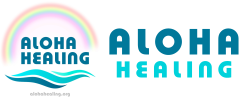Could Undiagnosed Symptoms Like Vertigo, Headaches, or Cold Sensitivity Be Linked to Muscle Stiffness?

Many people experience various physical conditions, yet few connect them to muscle or tendon stiffness. Medical doctors are trained to examine individual organs, and when no abnormal markers are found, the causes often remain unknown.
As explained in the Self-Massage Technique videos, the vagus nerves, a type of cranial nerve, are connected to all organs. Additionally, the vestibulocochlear nerves, which run through the back of the neck, control equilibrium. It’s possible that pressure on these nerves due to stiffness in surrounding muscles could induce symptoms like indigestion (from slowed peristalsis) or vertigo, respectively.*
Consider other examples: extreme stiffness of neck muscles, such as the sternocleidomastoid (SCM), might put pressure on arteries leading to the brain, causing headaches. Similarly, stiffness in calf muscles, like the tibialis posterior, could constrict nerves leading to the sciatic nerves and blood vessels to the feet, leading to cold feet or even a Charley horse (leg cramp).
While stiffness isn’t always the cause, it’s a possibility to consider when the origin of symptoms cannot be identified.
Is There a Remedy for Neck Muscle Issues?

The neck muscles play a crucial role in supporting the heavy head. Increasingly, people are spending long hours in chair-bound work or using smartphones, both of which encourage a head-forward posture. This often leads to unknowingly strained and tight neck muscles.
As mentioned, stiff neck muscles can press on the nerves affecting arteries, potentially resulting in headaches or sleep disturbances due to impaired blood flow. Also, the levator scapulae muscles, responsible for shoulder stiffness, are actually attached to the cervical spine.
Furthermore, individuals who constantly clench their jaws often develop tight omohyoid muscles, which can contribute to slurring or swallowing difficulties. Moreover, tight splenius capitis or spinalis capitis muscles at the back of the neck could press on the vestibulocochlear nerves, inducing vertigo—a condition often misdiagnosed as Meniere’s disease.*
* Not clinically proven
Given the neck’s importance, you might wonder why therapists don’t commonly work on it. Massage schools typically teach that massaging the neck area, except for the very back, is dangerous due to the presence of the carotid arteries and jugular veins. Indeed, manipulating infarcted carotid arteries could cause a stroke if blood clots travel to the brain.
However, Pain Therapy by Muscle Manipulation addresses this safely. It releases muscles that are pulling on the symptomatic muscles, meaning the aching neck muscles themselves don’t need to be touched. This approach also helps correct a forward head posture.
Shoulders, Neck & Backache Often Comes As A Set
|
Whether due to long hours of desk work, driving, excessive reading, or other reasons, stiffness in the shoulders, neck, and back often occurs together. It’s commonly believed that alleviating stiffness in these muscles will relieve the pain. However, this isn’t always the case. Aching muscles are often the result of being pulled and constantly stretched. The muscles that are causing the pain are the ones that need to be addressed. Pain Therapy by Muscle Manipulation focuses on releasing the muscles that are pulling on the symptomatic muscles, tendons, or ligaments. During a session, a body alignment diagnosis is performed to identify which muscles need attention. Releasing stiffness in these causative muscles can also improve your body posture. |
Uncovering the Root of Mysterious Pain
This pain therapy can help determine if symptoms of unknown origin are linked to muscle stiffness pressing on nerves or blood vessels. By conducting a thorough muscle and skeletal balance check-up, we can identify the specific muscles causing the pain.
Often, symptomatic muscles are already stretched, and traditional massage, while providing temporary relief, can further expand them, leading to the pain’s return. In contrast, Pain Therapy by Muscle Manipulation focuses on treating the source of the pain, targeting the muscles that are causing the issue. This approach aims for a lasting removal of pain.
|
Pain Therapy by Muscle ManipulationCost: Donation only
|
Gliding With Oil For Stressed
Alternative Therapy: Hawaiian Lomilomi for Relaxation
The body and mind are inextricably interrelated. When your mind is stressed, your sympathetic nerves become constantly irritated and the balance with your parasympathetic nerves becomes compromised. This condition affects not only your brain, but also your internal organs and all of your physical functions.
For those who are stressed, one of the most effective relaxation method would be to receive Hawaiian Lomilomi that improves the lymphatic flow in your body and thus helps to make your body and mind relaxed, while physiologically excretes lactic acids that have been accumulated within muscle fibers.
|
|
OUTCALL THERAPY REQUEST FORM
Our out-call services extend to Honolulu, Waikiki, Ala Moana, Kakaako, Pearl City, Kahara, Hawaii Kai, Kailua, Kaneohe, Waimanalo, etc. The therapies are available from our licensed massage therapists:
![]() Download Client Agreement Form for signing in advance
Download Client Agreement Form for signing in advance
![]() To make a reservation, please use the following form:
To make a reservation, please use the following form:
[ Usually, it is best to allow a few days ahead for booking. ]




